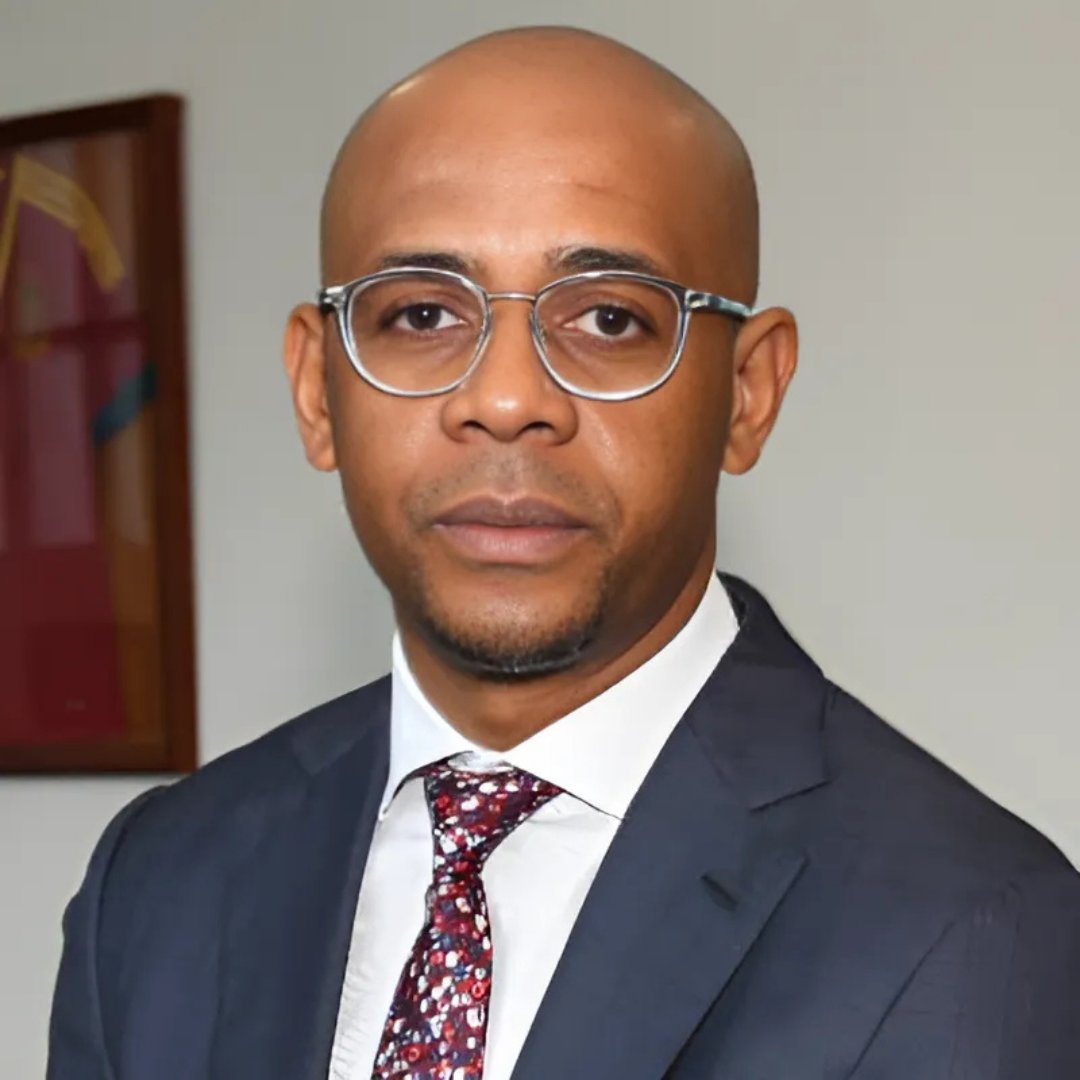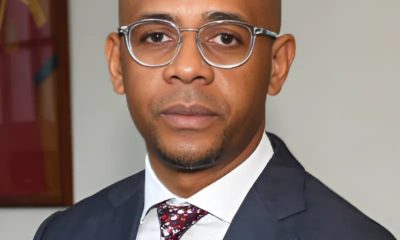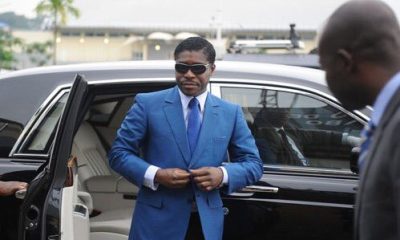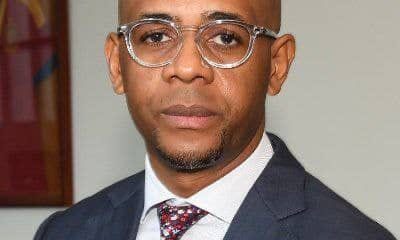Africa
Massive Sex Tape Leak Could Be Ploy For Power In Equatorial Guinea
Engonga is a nephew of President Teodoro Obiang Nguema and one of those thought to be hoping to replace him.

What the rest of the world sees as a sex tape scandal could in fact be the latest episode in the real-life drama over who will become Equatorial Guinea’s next president.
Over the past fortnight, dozens of videos – estimates range from 150 to more than 400 – have been leaked of a senior civil servant having sex in his office and elsewhere with different women.
They have flooded social media, shocking and titillating people in the small central African country and beyond.
Many of the women filmed were wives and relatives of people close to the centre of power.
It appears some were aware they were being filmed having sex with Baltasar Ebang Engonga, who is also known as “Bello” because of his good looks.
All this is hard to verify as Equatorial Guinea is a highly restricted society where a free press does not exist.
But one theory is that the leaks were a way to discredit the man at the centre of the storm.
Mr Engonga is a nephew of President Teodoro Obiang Nguema and one of those thought to be hoping to replace him.
Obiang is the world’s longest-serving president having been in power since 1979.
The 82-year-old has overseen an economic boom that has turned to bust as a result of the now-dwindling oil reserves.
There is a small, extremely wealthy elite, but many of the 1.7 million people in the country live in poverty.
Obiang’s administration is heavily criticised for its human rights record, including arbitrary killings and torture, according to a US government report.
It has also had its fair share of scandals – including the revelations about the lavish lifestyle of one of the president’s sons, now vice-president, who once owned a $275,000 (£210,000) crystal-encrusted glove worn by Michael Jackson.
Despite regular elections, there is no real opposition in Equatorial Guinea as activists have been jailed and exiled and those with designs on office are closely monitored.
Politics in the country is really about palace intrigue and this is where the scandal involving Mr Engonga fits in.
He was the head of the National Financial Investigation Agency, and worked on tackling crimes such as money laundering.
But it turned out he himself was under investigation.
He was arrested on 25 October accused of embezzling a huge sum of money from state coffers and depositing it in secret accounts in the Cayman Islands. He has not commented on the accusation.
Mr Engonga was then taken to the infamous Black Beach prison in the capital, Malabo, where it is alleged that opponents of the government are subjected to brutal treatment.
His phones and computers were seized and a few days later the intimate videos started appearing online.
The first reference the BBC has found to them on Facebook is from 28 October on the page of Diario Rombe, a news site run by a journalist in exile in Spain, which said that “social networks exploded with the leaking of explicit images and videos”.
A post on X the following day referred to a “monumental scandal shaking the regime” as “pornographic videos flood social media”.
But they are believed to have originally appeared one-by-one a few days earlier on Telegram, on one of the platform’s channels known for publishing pornographic images.
They were then downloaded on to people’s phones and shared among WhatsApp groups in Equatorial Guinea, where they caused a storm.
Mr Engonga was quickly identified along with some of the women in the videos, including relatives of the president and wives to ministers and senior military officials.
The government was unable to ignore what was going on and on 30 October Vice-President Teodoro Obiang Mangue (once owner of the Michael Jackson glove) gave telecoms companies 24 hours to come up with ways to stop the spread of the clips.
“We cannot continue to watch families fall apart without taking any action,” he wrote on X.
“In the meantime, the origin of these publications is being investigated to find the author or authors and make them answer for their actions.”
As the computer equipment was in the hands of the security forces, suspicion has fallen on someone there, who, perhaps, sought to trash Mr Engonga’s reputation ahead of a trial.
The police have called on women to come forward to open a case against Mr Engonga for the non-consensual sharing of intimate images. One has already announced that she is suing him.
What is not clear is why Mr Engonga made the recordings.
But activists have put forward what could be other motives behind the explosive leak.
As well as being related to the president, Mr Engonga is the son of Baltasar Engonga Edjo’o, the head of the regional economic and monetary union, Cemac, and very influential in the country.
“What we are seeing is the end of an era, the end of the current president, and there is a succession [question] and this is the internal fighting we are seeing,” said Equatoguinean activist Nsang Christia Esimi Cruz, now living in London.
Speaking to the BBC Focus on Africa podcast, he alleged that Vice-President Obiang was trying to politically eliminate “anyone who could challenge his succession”.
The vice-president, along with his mother, are suspected to be pushing aside anyone who threatens his path to the presidency, including Gabriel Obiang Lima (another son of President Obiang from a different wife), who was oil minister for 10 years and then moved to a secondary government role.
Those in the elite are thought to know things about each other that they would rather was not made public, and videos have been used in the past to humiliate and discredit a political opponent.
There are also frequent accusations of coup plotting, which further fuels paranoia.
But Mr Cruz also alleges that the authorities want to use the scandal as an excuse to crack down on social media, which is how a lot of information about what is really going on in the country gets out.
In July, the authorities temporarily suspended the internet after protests broke out on the island of Annobón.
For him, the fact that a high-ranking official was having sex outside of marriage was not surprising as it was part of the decadent lifestyle of the country’s elite.
The vice-president, who himself has been convicted of corruption in France and has had lavish assets seized in various countries, wants to be seen as the man cracking down on graft and wrong-doing at home.
Last year, for example, he ordered the arrest of his half-brother over allegations he sold a plane owned by the state airline.
But in this case, despite the vice-president’s efforts to stop the spread of the clips, they continue to be viewed.
This week, he tried to appear more resolute calling for the installation of CCTV cameras in government offices “to combat indecent and illicit acts”, the official news agency reported.
Saying that the scandal had “denigrated the image of the country” he ordered that any officials found engaging in sex acts at work would be suspended as this was a “flagrant violation of the code of conduct”.
He was not wrong that the story has attracted a lot of outside interest.
Judging by Google’s data, search enquiries that include the country’s name have shot up since the beginning of this week.
On Monday, on X, “Equatorial Guinea” was one of the top trending terms in Kenya, Nigeria and South Africa – surpassing at times interest in the US election.
This has left some activists who have been trying to tell the world about what is really going on in the country frustrated.
“Equatorial Guinea has much bigger problems than this sex scandal,” said Mr Cruz, who works for a rights organisation called GE Nuestra.
“This sex scandal for us is just a symptom of the illness, it’s not the illness itself. It just shows how corrupt the system is.”
Kenya Insights allows guest blogging, if you want to be published on Kenya’s most authoritative and accurate blog, have an expose, news TIPS, story angles, human interest stories, drop us an email on [email protected] or via Telegram
-

 Grapevine5 days ago
Grapevine5 days agoAlleged Male Lover Claims His Life Is in Danger, Leaks Screenshots and Private Videos Linking SportPesa CEO Ronald Karauri
-

 Lifestyle1 week ago
Lifestyle1 week agoThe General’s Fall: From Barracks To Bankruptcy As Illness Ravages Karangi’s Memory And Empire
-

 Americas2 weeks ago
Americas2 weeks agoEpstein Files: Bill Clinton and George Bush Accused Of Raping A Boy In A Yacht Of ‘Ritualistic Sacrifice’
-

 Investigations1 week ago
Investigations1 week agoEpstein Files: Sultan bin Sulayem Bragged on His Closeness to President Uhuru Then His Firm DP World Controversially Won Port Construction in Kenya, Tanzania
-

 Business2 weeks ago
Business2 weeks agoABSA BANK IN CRISIS: How Internal Rot and Client Betrayals Have Exposed Kenya’s Banking Giant
-

 News2 weeks ago
News2 weeks agoAUDIT EXPOSES INEQUALITY IN STAREHE SCHOOLS: PARENTS BLED DRY AS FEES HIT Sh300,000 AGAINST Sh67,244 CAP
-

 Business2 weeks ago
Business2 weeks agoKRA Can Now Tax Unexplained Bank Deposits
-

 News1 week ago
News1 week agoState Agency Exposes Five Top Names Linked To Poor Building Approvals In Nairobi, Recommends Dismissal After City Hall Probe






















